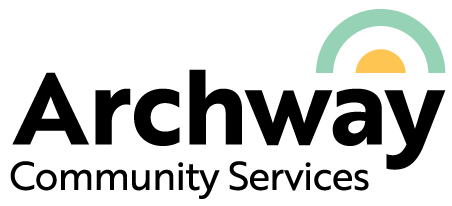
Photo Credit: Ehimetalor Akhere Unuabona on Unsplash
A message from our Executive Director, Rod Santiago
Greetings friends of Archway,
I, like you, have been disturbed and angered by ongoing acts of racism and injustice including acts of hate during COVID perpetrated against persons of Asian background and the recent killing of George Floyd. The roots of systemic racism are deep and in combination with police brutality, income inequality, and poor leadership, all amidst a global pandemic have resulted in weeks of protests across the US, Canada and worldwide with no end in sight.
And before we as Canadians start patting ourselves on the back for at least not being as bad as our neighbours to the south, we only need to look at the news or statistics to see our own problems.
Despite being one of the most ethnically and racially diverse countries in the world, the majority of “Canadians who are Black (54%) or Indigenous (53%) have personally experienced discrimination due to race or ethnicity from time to time if not regularly. Such experience is also evident but less widely reported by those who are South Asian (38%), Chinese (36%), from other racialized groups (32%), or White (12%).”
It can be easier to pretend racism doesn’t exist than to have to examine our own role and privilege. When we acknowledge that it’s real, we are compelled to act, which then begs the question, “What can I do?”
“I will not lose or waste my anger, and I suggest you don’t either,” Kenneth Elmore, Dean of Students at Boston University wrote. “Let’s use it to do what our rights allow and what our conscience compels.”
Action Steps
As an agency, Archway has things like a statement of diversity, land acknowledgements, a Diversity Education program specifically focused on anti-racism work, programs welcoming immigrants, plus we serve a diverse client base and have a diverse staff group, yet there is more “that our rights will allow us to do and that our conscience may compel us to do.”
Last week our staff held a dialogue session to reflect and listen and our Inclusion and Diversity Committee is pursuing actionable items for our agency.
If you’re wondering what you can do, here’s some suggestions taken from online resources and others suggested by our Diversity Education program.
- Start by educating yourself about history, current issues, and the barriers people of colour face. Here a few resources to get you started
- Canadian Anti-Racism Resources
- Indigenous History Month Resources
- Canadian Race Relations Foundations Webinars
- 35 Books to Read on Indigenous History
- This resource “Justice in June” gives daily tasks you can do in 10, 25 or 45 minutes a day to be an active ally to the black community (US perspective)
- Ted Talks (mostly US perspective)
- Scaffolded Anti-Racism Resources
- Listen and learn. Don’t question or argue with someone’s lived experience
- Follow more people of colour on social media
- Buy books by diverse authors
- Watch shows with diverse casts, writers and experiences
- Talk to your friends and colleagues about their experiences.
- Be an active witness by speaking out when you see or hear racism taking place. Here are 11 types of active witnessing response types to try:
- Interrupt
- Express upset feelings
- Call it “racism”
- Disagree
- Question validity
- Point out how it offends and hurts people
- Put the offender on the spot
- Help the offender to self-reflect
- Support the victim
- Ask others for involvement and help
- Approach other witnesses at the scene
- Donate to organizations engaged in anti-racism and social justice work if you’re able to.
- Recognize our own biases, stereotypes, prejudice; it’s human nature to have these and it’s up to us to question them.
- If you know of someone who has experienced racism or discrimination, please refer them to our Diversity Education program, which tracks incidents of racism and offers support to the victims.
There’s so much to do that it’s easy to be overwhelmed. Let’s tackle this one step at a time starting with ourselves.
Encouraging you to do what your “rights allow and what your conscience compels.”
Rod Santiago
Executive Director,
Archway Community Services
It can be easier to pretend racism doesn’t exist than to have to examine our own role and privilege.
When we acknowledge that it’s real, we are compelled to act, which then begs the question, “What can I do?”
